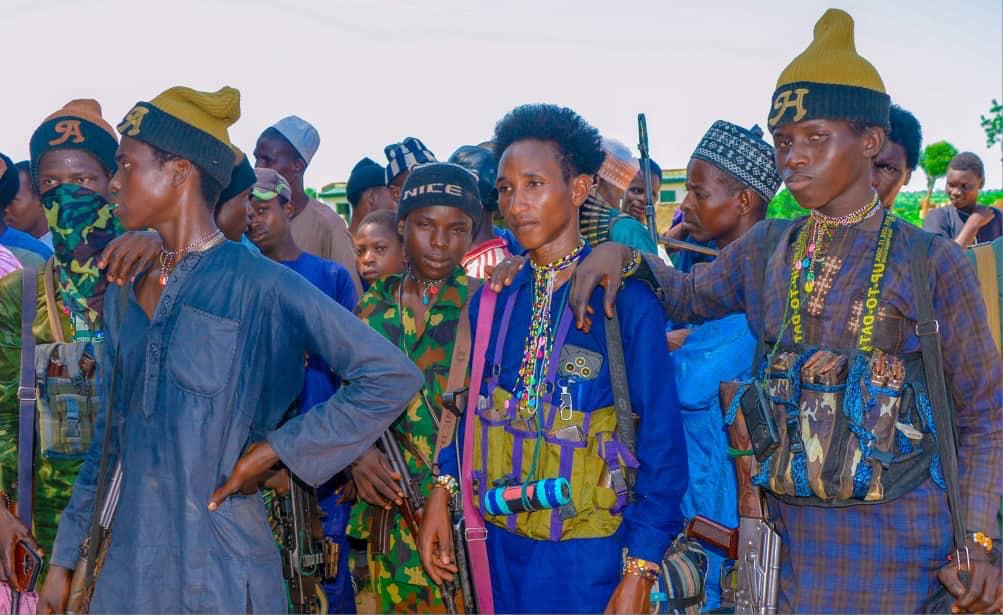BY ANNABELL ADAMATE
Nigeria today is facing a deepening crisis that cuts deeper than politics, corruption, or poverty alone, its youths, As Nelson Mandela observed, the youth hold the future of any nation in their hands. If they are led by vision, a country prospers, but if they are consumed by violence, its tomorrow is lost. Today millions of Nigerian youths are now entangled in destructive behaviours, such as cybercrime, cultism, banditry, terrorism, and violence, that threaten not only their future but the nations stability, fuelling conflicts across every region. This is no longer a matter of isolated misbehaviour. It has become a festering wound spreading infection to the nation’s core, with dire consequences for peace, stability and the future.
From the northern states of Nigeria to the Niger Delta, and Lagos, the signs are everywhere. Armed bandit groups recruit teenagers to raid villages, kidnap travellers, and extort ransom money. Boko Haram and its splinter faction ISWAP still lure recruits with promises of power or a distorted sense of purpose. In the south, cult-related killings and gang rivalries have become routine. Across cities, Yahoo boys flaunt cybercrime wealth, normalising fraud as an aspiration. Together, these trends point to one conclusion; youth radicalisation is now a major driver of conflict in Nigeria.
Analysts and security reports point to a disproportionate involvement of young people in recent waves of banditry, gang violence and cybercrime. In March 2025, EFCC Chairman Ola Olukoyede warned that foreign criminal syndicates are actively recruiting Nigerian youths into cybercrime rings, including cryptocurrency scams. He added that the toll was psychological as well as financial. We are losing a generation to internet crime, he told reporters in Abuja, calling the trend a direct threat to Nigeria’s future.
Advertisement
On the violent front, the evidence is just as alarming. In March 2024, gunmen kidnapped at least 87 people from Kajuru Station in Kaduna state. Security officials confirmed that most of the attackers were teenagers armed with AK-47s. That same month, the army rescued 17 abducted students in Sokoto. By mid-2025, bandits struck in Zamfara, killing nine and abducting 15 residents. These incidents highlight how radicalisation fuels Nigeria’s most pressing security challenges.
Government response has been uneven. The Niger Delta Amnesty Programme, once hailed as a success, has faded, leaving many ex-militants disillusioned and some drifting back to violence. In the north-east, Boko Haram fighters reintegrated under the controversial Operation Safe Corridor were reported by the Nigerian Army in 2023 to have quietly returned to insurgency, raising doubts about the programme’s credibility. To ordinary Nigerians, especially unemployed youths, the message is troubling, violence and crime often appear to pay more than peaceful living.
Dr. Akinola Olojo of the Institute for Security Studies in Dakar argued in a 2024 paper that Nigeria risks becoming Africa’s most conflict-ridden nation if youth radicalisation is not urgently addressed. He described radicalisation as the thread stitching together banditry in the north-west, terrorism in the north-east, separatist agitations in the south-east, and cult violence in the south-west. His analysis echoes warnings from the UN Office on Drugs and Crime, which in 2022 linked youth radicalisation directly to Nigeria’s booming kidnapping-for-ransom economy.
Advertisement
The roots of the crisis are clear. For decades, successive governments failed to tackle unemployment, poverty, and corruption. The National Bureau of Statistics’ revised Labour Force Survey reported a headline unemployment rate of roughly 4–5% in 2024, but this reflects a methodological change. NBS data also show that about 93% of employed Nigerians work in the informal sector, many in precarious self-employment rather than secure wage jobs. Independent surveys and earlier NBS figures point to much higher youth joblessness: pre-revision estimates placed youth unemployment above 50% in 2020, while Afrobarometer finds widespread youth unemployment, discouraged job seekers.
The consequences are brutal. Rural communities in Kaduna, Katsina, Zamfara, and Sokoto are emptying as bandit’s torch people’s homes and force residents into displacement camps. Parents live in constant fear of abductions, In the south, cult wars have become a new normal in universities, while cities facing rising violent crime and kidnappings have surged. Recently, in Edo and Bayelsa, for example, kidnappers have turned residents into cash cows, abducting over 50 people between January and May 2025 for ransom. In June 2025, security agencies in the state arrested 175 suspects, including 40 for kidnapping and dozens more for cultism, recovering firearms and dangerous weapons in the process. These are not random acts they are symptoms of a festering wound deepening Nigeria’s instability.
The path forward must be decisive. Military crackdowns alone cannot solve the problem. Education reform is urgent not only to keep children in school, but to ensure learning produces skills relevant to today’s economy. Job creation must move beyond slogans and numbers that don’t reach the ordinary people, with real investments in industry, agriculture, and technology. Families, religious leaders, and communities must also help restore values that reject fraud and violence as acceptable routes to success.
The stakes are high. With Nigeria’s population projected to surpass 250 million by 2030, the nation’s future rests only on its youth. If radicalisation continues to spread like an untreated infection, the country risks becoming not only Africa’s largest democracy but also its most violent battlefield. Yet if urgent steps are taken through education, employment, cultural renewal, and effective governance the energy of Nigerian youths can be redirected from destruction to nation-building. Sadly, many of the nation’s brightest talents continue to flee abroad, from nurses and doctors migrating for better opportunities to athletes like Favour Ofili, who qualified for the women’s 100m at Paris 2024 but was not even registered by Nigerian officials.
Advertisement
Nothing is more discouraging for young Nigerians than a system seemingly designed to make them fail. When the qualified are neglected and forced to leave, it is no surprise that the uneducated and frustrated turn to crime, cultism, or armed violence. Our youths are taking action, but too often, those actions are at the nation’s expense.
Youth radicalisation has evolved from a marginal concern to a critical threat at the core of Nigeria’s security crisis. The challenge is clear, Will Nigeria rise to meet this growing threat?
Annabell Adamate, a student of the National Open University of Nigeria (NOUN), is currently undergoing internship at the Institute for Peace and Conflict Resolution (IPCR). She can be contacted via [email protected].
Advertisement
Views expressed by contributors are strictly personal and not of TheCable.











